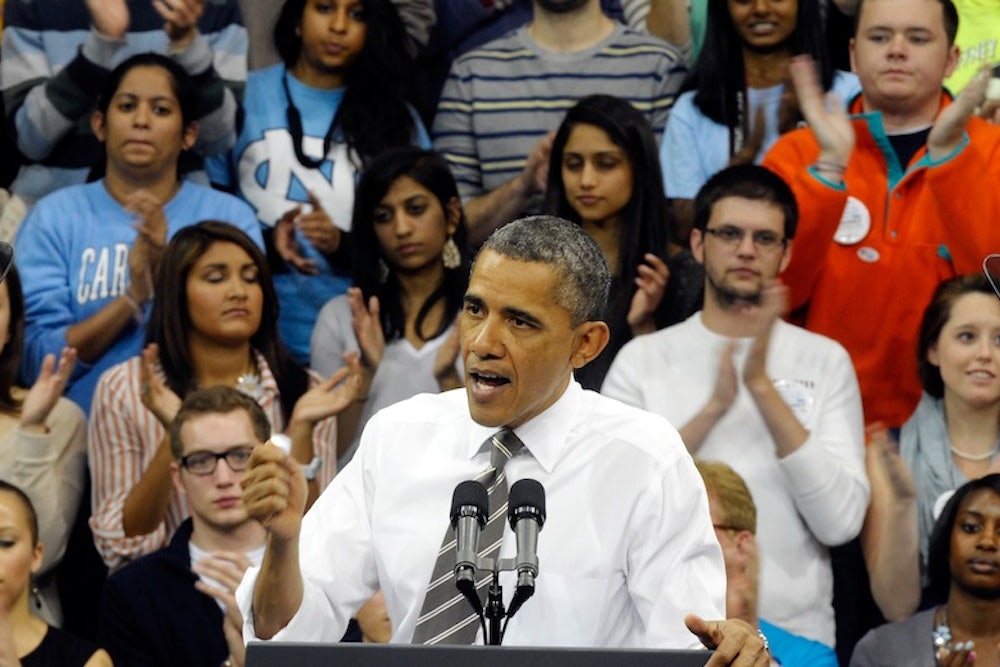Politico reports that a new study from Harvard’s Institute of Politics found that Millennials—those aged 18 to 29—are now down on Barack Obama, with 54 percent disapproving of his performance. This represents a stark shift not only from four years ago but from six months ago. “The economy” is largely to blame, and Obamacare—whether the idea itself or the implementation—hasn’t helped, either. But surely this has more to do with general trends, right? Can we extrapolate from what this study says to grand conclusions about millions of Americans united exclusively by the years in which they were born? Yes, we can.
Today’s young adults born after 1980, known as Generation Y or the millennial generation, are the most educated generation in American history and, like the baby boomers, one of the largest. Yet since the Great Recession of 2008, they have been having a hard time. They are facing one of the worst job markets in decades. They are in debt. Many of them are unemployed. The income gap between old and young Americans is widening.
This is a generation that is in danger of being left out of the American dream—the first American generation to do less well economically than their parents. And that economic uncertainty appears to have played a big role in shaping their views of government and politics.
If anyone should be complaining about deficits, it should be the 20-somethings who will have to pay for all those meds-popping boomers moving into the comfort of Medicare and Social Security.
They were raised by doting parents who told them they are special, played in little leagues with no winners or losers, or all winners. They are laden with trophies just for participating and they think your business-as-usual ethic is for the birds. And if you persist in the belief you can, take your job and shove it.
The millennial generation was brought up on the “you-can-do-anything” dream. That dream, however, comes with a few caveats: don't let student loans crush you first, or unpaid internships leave you homeless. Add in David Byrne's take—that we’re living in “a culture of arrogance, hubris and winner-take-all”—and it’s no wonder millennials are making more practical choices.
In 2008, President Obama spoke directly and successfully to the Millennial experience. But his inability to overcome polarization and gridlock has cost the president support among young Americans (even if they blame the GOP for Washington dysfunction).
To an extent there is a divide among millennials—the Obama generation that rejected President George W. Bush and the younger cohort for whom the comparison isn’t to Bush but to Obama the campaigner.
Social media permeate the personal, academic, political and professional lives of millennials, helping to foster the type of environment where innovation flourishes. So when compared with older generations, millennials learn quickly.
Political analysts see [] a troubling trend: the idealism of youth is slipping away, replaced by mistrust and a growing partisan divide among voters under 30. These so-called millennials, who turned out in droves to elect Mr. Obama in 2008, are increasingly turned off by politics. Experts fear their cynicism may become permanent.
[With apologies to Jonathan Lethem, David Shields, et al.]
